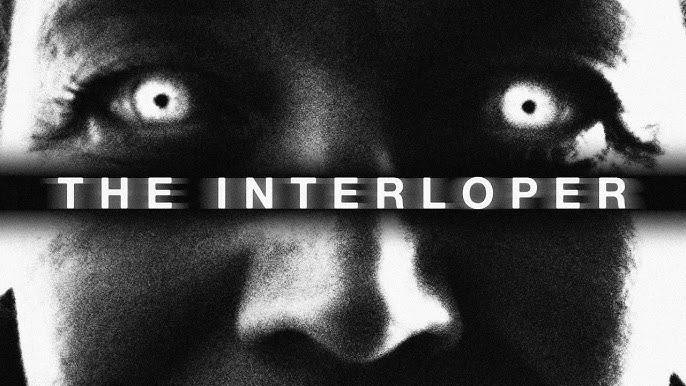According to Vox It’s hard to overstate just how bad Netflix’s Persuasion is, and in how many ways.
As an imitation of Netflix’s hit Bridgerton, Persuasion is a pale copy. While it aims for the candy-coated Regency pastiche that Bridgerton made fashionable, it’s too stolidly convinced of its own virtues to revel in the sudsiness that renders Bridgerton so satisfying. It apes Bridgerton’s cheeky anachronisms (“A 5 in London is a 10 in Bath!”) as if its audience should consider them revelations rather than weak jokes that by now are more than tired.
As a showcase for Dakota Johnson, it’s a letdown. Johnson’s easy screen presence has been the redeeming factor of many a bad movie before this one, but in the starring role of Anne Elliot, she does nothing to lighten Persuasion as it swings on its emotional pendulum from dour to dull. Instead, she winks at the camera with her best Jim-from-The Office smirk, as if to say, “Aren’t we all in agreement that this is charming?” We aren’t.
SEE ALSO :How to watch Arsenal vs Everton on TV
As an adaptation of Jane Austen’s Persuasion, it’s a disaster. Where Austen’s original is devastating in its restraint, this film is broad in its humor, shallow in its emotions, and ham-fisted in its characterization. Unforgivably, it makes a mess of one of Austen’s most romantic moments, undercutting the iconic letter-writing scene until it’s lost all internal logic and, with it, all emotional power.
Taken on its own, purely as a movie, Persuasion is simply bad. It is boring. It’s not romantic. It’s not funny. It’s not sad. It seems to have no reason to exist— and the reason it does eventually offer up is frankly insulting to everyone involved.
Persuasion, directed by Carrie Cracknell and with a screenplay by Ron Bass and Alice Victoria Winslow, loosely follows the plot of Austen’s original. Anne Elliot — rich, pretty, and charming — was once madly in love with the penniless young sailor Frederick Wentworth. They were engaged to be married. But Anne’s friends and relatives convinced her that she should not throw herself away at 19 on a man who had no money and few prospects, and so she broke Wentworth’s heart.
When both novel and movie open, it’s eight years later. Anne has never gotten over Wentworth, but she’s now a spinster, resigned to devoting her life to caring for her sisters and her sister’s children. Wentworth, meanwhile, has become a captain in the navy. He’s now wealthy and respectable, in search of a wife of his own, and still furious with Anne for ending their relationship the way she did. And circumstances have conspired to make him a guest at her sister’s home while Anne is staying there too.
Austen’s Anne reacts to these circumstances the way she reacts to most things: outwardly remaining as calm and composed as possible, while inwardly tortured. The tension between the social pressures Anne is forced to navigate and her profound emotional pain is part of what drives Austen’s Persuasion forward, what makes it so heartbreaking to read.
This sort of interior divide is admittedly a difficult one to dramatize onscreen. The solution Cracknell and her collaborators have invented is admittedly a novel one: they got rid of it entirely.
In Netflix’s Persuasion, Anne takes on the mannerisms of the heroine of a mid-tier ’90s rom-com, weeping in the bathtub, weeping into copious amounts of red wine, weeping as she pratfalls into accidentally pouring gravy over her head. When she isn’t weeping, she is either mugging to the camera over her relatives’ foibles or blurting out non sequiturs in awkward social situations. “Sometimes I have a dream that an octopus is sucking my face,” she tells one party.
Wentworth, meanwhile, has lost the polished charm and go-getter energy of his book counterpart. As played by Cosmo Jarvis, Wentworth is shy, brooding, and vague; a Darcy cyborg without the specificity. He gives good gaze, but no evidence of anything behind it.
The film picks up briefly when Henry Golding arrives to play Mr. Elliot, Anne’s cousin and Wentworth’s rival for her heart. Golding is in pure mustache-twirling villain mode (although unaccountably, Cracknell has omitted the plot line in which Mr. Elliot is actually revealed to be a villain). His presence adds a welcome jolt of energy to the proceedings.
Energy by and large is lacking here, a fact of which the film seems utterly unaware. Persuasion carries on under the apparent assumption that all its trendy anachronisms will jolt fusty old Austen to life. Where Austen wrote, with her finely tuned sense of irony and social paradox, “Now they were as strangers; nay, worse than strangers, for they could never become acquainted. It was a perpetual estrangement,” Cracknell renders the line as the achingly clumsy, “Now we’re strangers. No, worse than strangers. We’re exes.” Then the camera pulls back to let you survey the result, as if this film has done you the service of making Persuasion make sense in the 21st century, in the same way that Clueless made Emma make sense in the 20th century.
But the thing is, Austen’s Persuasion already makes sense in the 21st century. (So, for that matter, does Emma, a fact of which Clueless was fully aware.) Sure, the social codes that made Anne Elliot determined to cover up her own heartbreak have changed. But the emotions at the novel’s core — loneliness, longing, despair — breathe powerfully through into the present.
Adapting Emma into Clueless worked because its transposition of Regency mores into a ’90s SoCal high school was playful and witty. Clueless wasn’t explaining Emma to an audience too dumb to get it. It was having fun with its audience.
Persuasion’s attempt to transpose modern mores into Regency England just feels clumsy and condescending. It feels like the movie thinks you’re too stupid to understand Jane Austen on your own, so instead of trying to bring her work to life, it’s decided to spoon-feed you a summary.
In one indelible moment of Austen’s Persuasion, Wentworth tells Anne, “I am half agony, half hope.” Netflix’s Persuasion is all agony.




